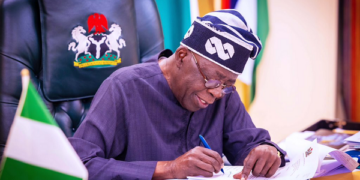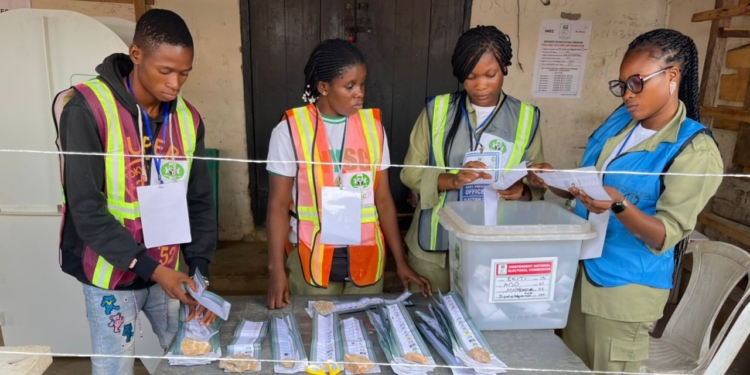- The governorship elections in Bayelsa, Imo, and Kogi states on Saturday are seen as a referendum on President Bola Ahmed Tinubu’s new administration
- Disinformation, violence, and identity politics are significant threats to voter participation in these elections, with substantial implications for Nigeria’s political landscape
The Centre for Democracy and Development (CDD) has stated that the governorship elections taking place in Bayelsa, Imo, and Kogi states on Saturday serve as a referendum on the new administration of President Bola Ahmed Tinubu.
In a statement released on Wednesday, Idayat Hassan, the Director of CDD, highlighted that alongside identity politics, zonal considerations, violence, and lack of inclusion, disinformation propagated by political actors is a significant threat to voter participation in these elections.
CDD further emphasized the November 11 polls’ pivotal role in Nigeria’s democratic process. The outcomes of these elections will substantially impact the political fortunes of the involved parties and will lay the groundwork for the upcoming general elections in 2027. The 2023 general elections were marked by technological advancements, increased civil society participation, and identity-based divisions among candidates and parties, influencing the subsequent off-cycle governorship elections in Bayelsa, Imo, and Kogi.
Given that these elections are taking place approximately 120 days into the tenure of the new federal administration led by President Bola Tinubu, they pose a unique challenge for both the ruling party and the opposition, including the People’s Democratic Party (PDP) and the Labour Party (LP). The performances of the elected governors, including Diri in Bayelsa, Uzodinma in Imo, and Bello in Kogi, will be closely scrutinized, as these states experienced contentious and litigated general elections at the beginning of the year.
However, a major concern for the November 11 off-cycle elections is the anticipated role of misinformation, disinformation, and fake news. Political parties have been identified as significant actors in the information space around the elections, using influencers and youth mobilizers to spread disinformation campaigns about opposing parties and candidates. Efforts have been made to address these concerns, including shared platforms with election officials, party officials, and media groups to mitigate the impact of misinformation and disinformation. Additionally, the unfair targeting of women during such campaigns has been noted.
The elections on Saturday will also play a crucial role in shaping how younger Nigerians engage with politics in the future. Furthermore, they have drawn attention to the lopsided gender imbalance among nominees for the position of governor in these states, prompting increased scrutiny in the lead-up to the elections.










Discussion about this post